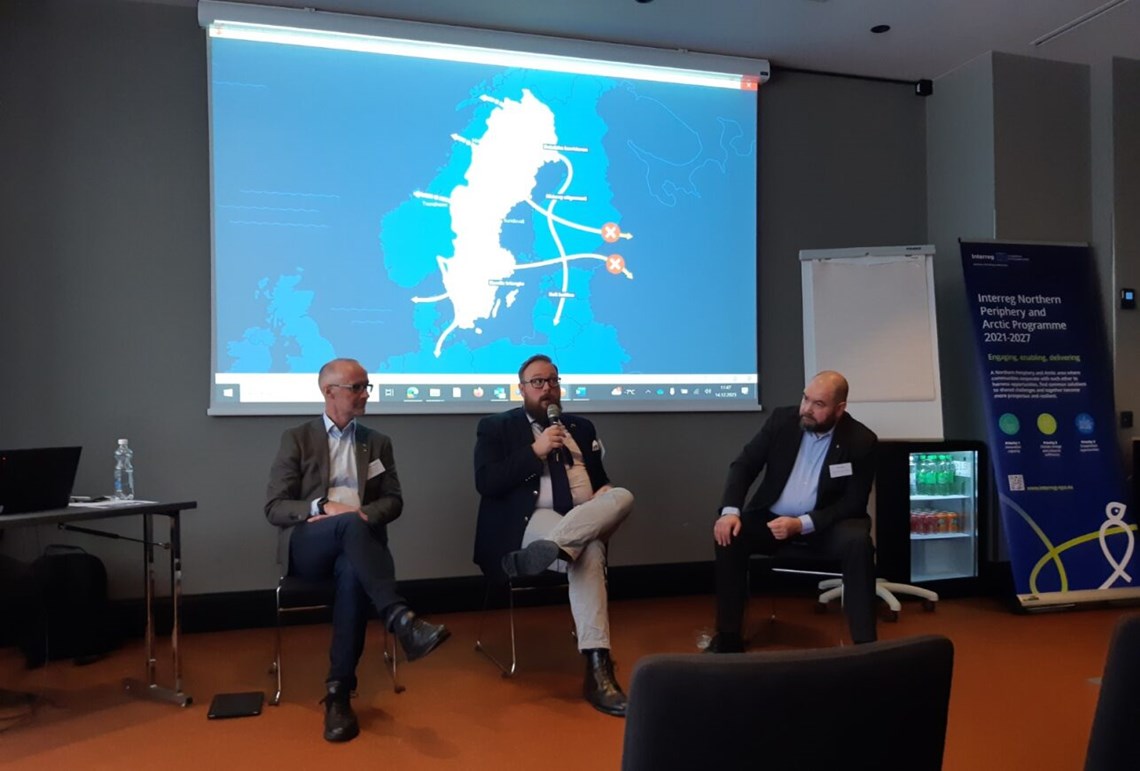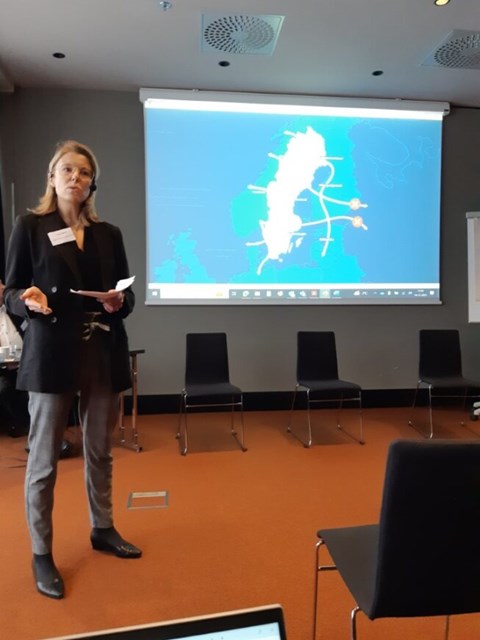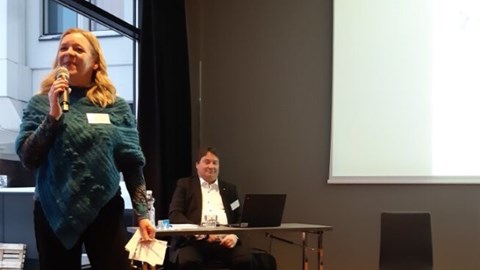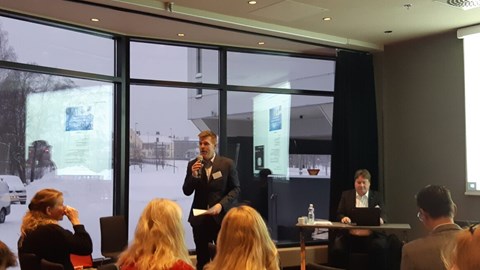Key Takeaways From The NSPA Forum 2023

On the 14th of December 2023, we gathered in the capital of North Karelia, Joensuu, for the annual NSPA forum. This year, the forum’s main topics were EU cohesion policy as well as the effects of the geopoltitical situation, security plans, infrastructure, and transport plans on the regions. We also received an update on the project “Support to the implementation capacity of sustainable green development in the European Arctic Northern Sparsely Populated Areas (NSPA)” implemented by the OECD. Finally, we held a fruitful workshop on the future of NSPA. Across the various presentations, discussions, and events of the forum, a few central themes emerged: finding new ways of co-operation, promoting a unified voice, as well as fostering resilience and flexibility.
The opening words of the forum were given by Region Mayor of North Karelia Markus Hirvonen and Chair of the NSPA Steering Committee Päivi Ekhdal (pictured below). After welcoming the attendees to the forum, Hirvonen provided context for the forum and its area of focus: a rapidly changing political landscape characterised by recent and ongoing crises. Despite the challenges faced by the area, Hirvonen had a hopeful message for the future, one of working together to pioneer positive change by utilising our unique strengths.
Ekhdal’s talk further drove home the point of collaboration, as she emphasized the importance of introspection on one hand, and of expanding our connections on the other. According to her, actors within the regions need to become more active to ensure the future efficacy of the network.
Valuable insight into the challenges and potential of the NSPA area was provided by Stefano Barbieri, the Senior Policy Analyst at The Organisation for Economic Co-operation and Development (OECD). A study currently being conducted conducted by The OECD highlights inadequate transport networks, decreasing public funding, and population decline as the key challenges faced by the areas. As opportunities for growth and improvement, Barbieri mentioned putting in place a new rural policy, attracting youth and women to the area, as well as improving connectivity and accessibility.
Another significant aspect influencing the NSPA area is EU Cohesion policy. The Director of North Sweden European Office (NSEO) Mikael Janson presented the NSPA’s Cohesion Policy Position Paper, which highlights the centrality of the NSPA in the changing geopolitical situation, the twin transition, and crisis management in the EU. Janson emphasized the importance of effectively communicating the relevance of the NSPA area to EU Institutions in order to increase influence on cohesion policy.
These issues were further examined in a panel discussion on the effects of the geopolitical situation, security policy, and infrastructure plans in the area. Context and background information was provided by the NSEO Senior Adviser in European Affairs Lotta Rönstrtöm and Janni Ekrem, an Advisor of EU Affairs at The North Norway European Office (NNEO). Rönström’s presentation focused on transport and logistics in the NSPA area, and more specifically on the ongoing processes and initiatives to improve accessibility and security. Ekrem’s talk adopted a broader point of view, as she focused on the implications of NATO membership, The Green Deal, and overall geopolitical shifts on the NSPA area.

The panel consisted of Mika Riipi, County Governor of Lapland, Jonas Andersson, Chairman of the Regional Development Board Jämtland Härjedaen, and Svein Magnar Øien Eggesvik, Chair of the County Council Nordland County. The panelists, along with participating audience members, discussed existing and potential avenues for co-operation to best utilise the potential of the NSPA area to address ongoing and future challenges and crises. When asked about guidelines for the future of the NSPA, the panelists again affirmed the necessity of unity, proactivity, resiliency, and ambition in the years to come.
The future of the network was discussed more in-depth by the participants of the forum in The Future of the NSPA workshop. A survey on the same topic had previously been conducted internally among the regional offices in Brussels as well as among our stakeholders. The results of these surveys will be combined with those of the workshop to generate recommendations and suggestions.
The main objective of the workshop was to give the forum participants the opportunity to reflect on the core topics of the NSPA cooperation and the role of the NSPA in finding solutions to global challenges and European policy initiatives. The participants were divided into five groups and asked to discuss questions provided by the workshop facilitators. Some of the general themes and ideas emerging from these discussions were addressing population decline and poor connectivity through advocacy, fostering a united voice and collaboration, prioritising transport and security, as well as increasing the visibility of the area in EU decision making. The internal survey results echoed these sentiments. The NSPA area should be presented as an attractive, spacious area with an abundance of opportunities for business, innovation, and leisure. To accomplish this, messaging regarding the area should become more focused, strategic, and far-reaching.
The forum was concluded with thanks from the organisers of the event and Chair Päivi Ekhdal. Participants were invited to attend next year’s forum in Bodø, the European Capital of Culture 2024. With heads full of new ideas, goals, and strategies, we are now well-prepared to face the upcoming year and what lies beyond.


